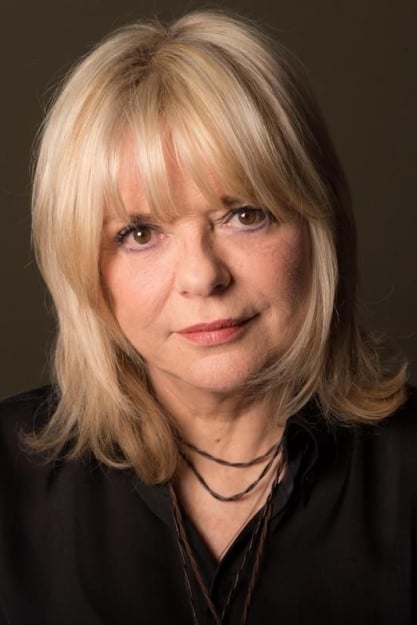
France Gall
Biography
Isabelle Geneviève Marie Anne Gall (9 October 1947 – 7 January 2018), known professionally as France Gall, was a French yé-yé singer. In 1965, aged 17, she won the Eurovision Song Contest for Luxembourg. Between 1973 and 1992, she collaborated with singer-songwriter Michel Berger.
Gall was born in Paris on 9 October 1947, to a highly musical family. Her father, the lyricist Robert Gall, wrote songs for Édith Piaf and Charles Aznavour. Her mother, Cécile Berthier, was a singer as well and the daughter of Paul Berthier, the co-founder of Les Petits Chanteurs à la Croix de Bois. The only daughter of her family, France had two brothers: Patrice and Philippe. In spring 1963, Robert Gall encouraged his daughter to record songs and send the demos to the music publisher Denis Bourgeois. That July, she auditioned for Bourgeois at the Théâtre des Champs-Élysées in Paris, after which Bourgeois wanted to sign her immediately. France was subsequently signed to Philips.
At the time, Bourgeois was working for the label as artistic director for Serge Gainsbourg and assumed this role for Gall as well. He encouraged her to record four tracks with the French jazz musician, arranger and composer Alain Goraguer.
The first airplay of France's first single, "Ne sois pas si bête" ("Don't Be So Stupid"), occurred on her 16th birthday. It was released in November and became a hit, selling 200,000 copies. Gainsbourg, who had released several albums and written songs for singers including Michèle Arnaud and Juliette Gréco, was asked by Bourgeois to write songs for Gall. Gainsbourg's "N'écoute pas les idoles" ("Don't listen to the idols") was Gall's second single; it reached the top of the French charts in March 1964 and stayed there for three weeks.
At the same time, Gall made her live debut, opening for Sacha Distel in Belgium. She teamed up with Distel's business manager, Maurice Tézé, a lyricist, which allowed her to create an original repertoire, unlike the majority of her contemporaries who sang adaptations of Anglophone hits. Elaborate orchestrations by Alain Goraguer blended styles, permitting her to navigate between jazz, children's songs, and anything in between. Examples of this mixed-genre style included "Jazz à gogo" (by Alain Goraguer and Robert Gall) and "Mes premières vraies vacances" (by Jacques Datin and Maurice Vidalin). Gall and Gainsbourg's association produced many popular singles, continuing through the summer of 1964 with the hit song "Laisse tomber les filles" ("Leave the girls alone") followed by "Christiansen" by Datin-Vidalin. Gainsbourg also secretly recorded Gall's laughter to use on "Pauvre Lola'", a track on his 1964 album Gainsbourg Percussions.
Having previously resisted, Gall gave in to her managers at the end of 1964 and recorded a single intended for children. The song "Sacré Charlemagne", written by her father, and set to the music of George Liferman, was a hit in 1965, peaking at number one in France and number five in Turkey. ..
Source: Article "France Gall" from Wikipedia in English, licensed under CC-BY-SA 3.0.
Known For
Personal Info
Known For
Acting
Known Credits
57
Gender
Female
Birthday
1947-10-09 (77 years old)
Place of Birth
Paris, France
Acting
2022
Il était une fois Champs-Élysées as Self (archive footage)2022
La TV des 70's : Quand Giscard était président as Self (archive footage)2021
Archives secrètes as Self (archive footage)2020
L'affaire Matzneff as (archive footage)2019
Johnny Hallyday - Un soir à l'Olympia as Self (archive footage)2019
Johnny Hallyday : Olympia 2000 - Les Duos as Self2016
Résiste as Moon2016
France Gall et Michel Berger, « Toi sinon personne » as Not available2015
Je m'présente, je m'appelle Daniel as Self (archive footage)2014
Les Enfoirés - Les Enfoirés en chœur de 1985 à aujourd'hui as Not available2010
Gainsbourg and His Girls as Self - Singer (voice)2005
Les Enfoirés, 15 ans d'Enfoirés as Not available2004
La chanson de l'année as Self2004
Bonjour la France as Self1998
Vivement dimanche as Self1997
France Gall - Concert acoustique as Self1997
France Gall - Olympia 1996 as Not available1996
Plus oh ! as France Gall1994
Les Enfoirés 1994 - Les Enfoirés au Grand Rex as Not available1994
France Gall - Bercy 93 as Self1993
Les Enfoirés 1993 - Les Enfoirés chantent Starmania as Not available1990
Stars 90 as Self1988
France Gall : Le tour de France 88 as Self1987
Le monde est à vous as Self1987
Sacrée soirée as Self1987
Collaricocoshow as Self1985
Victoires de la musique as Self1984
Goldener Löwe as Self1982
Champs-Elysées as Self1981
Droit de Réponse as Self1979
Starmania as Cristal1977
Fan School as Self1975
Midi Première as Self1975
Les Rendez-vous du dimanche as Self1975
Numéro un as Self1975
Numéro un as Émilie1975
Numéro un as Self - Host1975
Système 2 as Self1972
Midi trente as Self1972
Le Grand Échiquier as Self1971
Samedi soir as Self1969
Die ZDF-Hitparade as Self1968
Starparade as Self1968
Bettys Beat-Box-Haus as Self1968
Gallantly as Self1967
Ça c'est Claude François as Self1966
4-3-2-1 Hot and Sweet as Self1965
Dim Dam Dom as Self1965
Meine Melodie as Self1965
Soeben eingetroffen as self1964
Die Drehscheibe as Self1964
Vergißmeinnicht as Self1961
Musik aus Studio B as Self1959
Discorama as Self